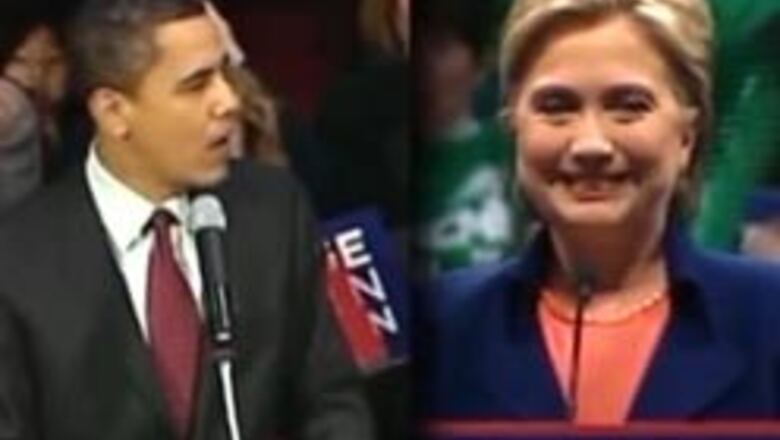
views
Dallas: Democratic presidential candidates Barack Obama and Hillary Clinton will court the "faith vote" at a forum this weekend, seeking support from a sizable constituency with a major influence on US politics. Organizers say the nationally televised forum on Sunday night at Messiah College near Harrisburg, Pennsylvania, will allow the candidates to discuss how their religious faith informs their positions on issues such as global poverty, AIDS, climate change and abortion.
Religion plays a much bigger role in US politics than elsewhere in the developed world, reflecting Americans' comparatively high rates of belief and church attendance. "It would be unlikely anywhere else to find presidential candidates who would feel compelled to answer questions from religious groups," said Matthew Wilson, a political scientist at Southern Methodist University in Dallas. "In many European societies, many politicians are reluctant to discuss their faith convictions publicly but here we expect them to do so."
The forum will be closely watched as it comes just over a week before Pennsylvania's crucial Democratic primary election that the Obama camp hopes could clinch the hard-fought contest to pick the party's candidate to run in November's presidential election. It is also aimed at a national audience.
Conspicuous in his absence will be the Republican presidential candidate, John McCain, whose party has been more closely linked with the "faith vote" - especially among the evangelical Protestants, who account for one in four US adults. McCain declined an invitation to the forum, which was organized by Faith in Public Life, a non-partisan resource center, and is expected to draw religious activists from across the political spectrum and a range of Christian backgrounds as well as Jewish and Islamic leaders.
The evangelical movement has been broadening its agenda beyond "hot-button" issues such as opposition to abortion and gay marriage that helped propel President George W Bush to the White House by getting conservative Christian Republicans to the polls. The forum's topics reflect this change and some see a missed opportunity for McCain to address liberal evangelicals.
Conservative Christians regard McCain with suspicion on many grounds, including his past support for stem cell research. Centrist evangelical activists such as David Gushee, a theology professor at Mercer University in Atlanta, have spoken well of McCain because he has combined a staunch opposition to abortion with concern for climate change and an unflinching condemnation of torture in the US fight against militants.
PAGE_BREAK
"This is what is so fascinating about his no-show. He is the one apparently who is least comfortable talking about issues of faith and how his faith might intersect with his public vision and this would give him a chance to do so," said Gushee, who will attend the event. Obama and Clinton have both been more comfortable talking about their faith in public.
All three presidential candidates belong to Protestant denominations - vital credentials in a country where many expect their political leaders to have a religious and preferably Christian affiliation. McCain was raised in the Episcopal Church but now attends a Baptist church, while Obama is with the United Church of Christ and Clinton is a Methodist.
Obama is almost sure to face renewed scrutiny at the forum over controversial sermons made by his pastor Jeremiah Wright in which he branded the United States as racist and said the September 11 attacks in 2001 were payback for its foreign policy. Obama has largely weathered the storm, thanks partly to a widely lauded speech in which he distanced himself from Wright's comments. But they still roil in the background.
Evangelical leaders say they are looking for different things from each party.
"We want to determine the Republicans' interest in addressing the needs of the vulnerable," said Joel Hunter, an influential Florida mega-pastor who supported Mike Huckabee when the Baptist preacher and former Arkansas governor made his populist but failed bid for the Republican nomination.
"We also want to gauge the Democrats' interest in community and faith-based solutions and not just handing it all off to the government," said Hunter, who will also be at the event.
Exit polls in some states have turned up sizable and, to some, surprising numbers of evangelical Democrats. Exit polls from Ohio's primary in early March suggested that 43 per cent of white evangelical voters voted Democratic. In 2004, Bush won about 78 per cent of this vote nationwide.
The issues to be raised on Sunday are also important to Roman Catholics, a large group in Pennsylvania, many of whom have been influenced by the Vatican's social teachings.
According to some exit polls in Pennsylvania's closely contested presidential race in 2004, Democratic Senator John Kerry narrowly won among Catholics. But for the more conservative followers of the faith, Democratic candidates remain a tough sell because of their support for abortion rights.
"The first thing I look at is whether they are pro-life or not, so there is not a lot of choice on the Democratic side," said Carolyn Astsalk, a Catholic who lives near Harrisburg.











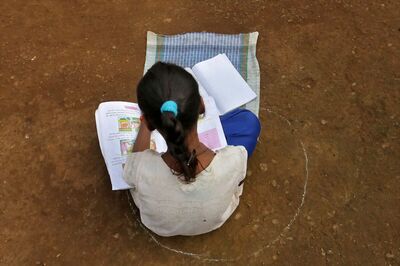

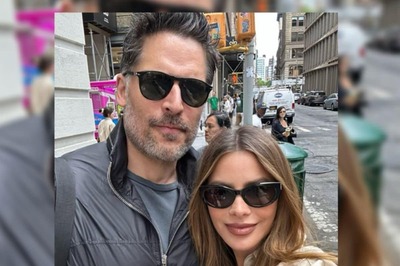
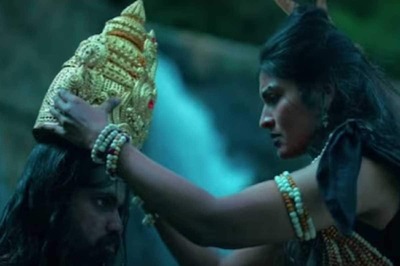

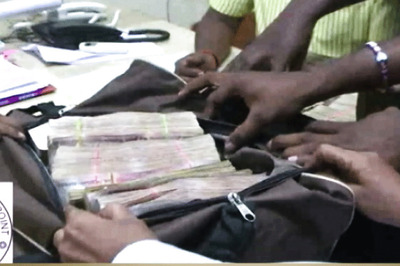
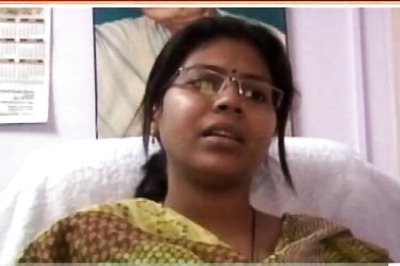


Comments
0 comment